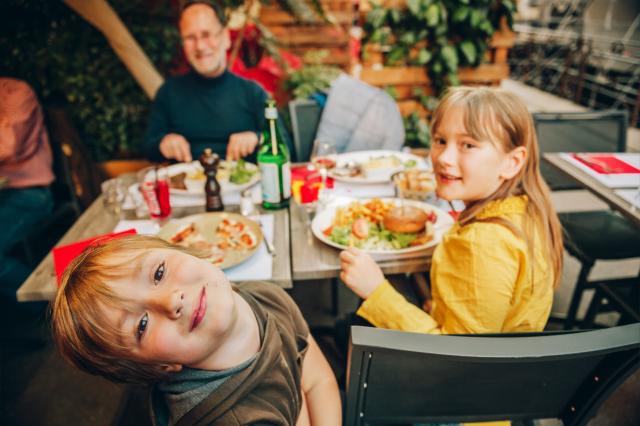The strength of a nation derives from the integrity of the home Confucius
Every living organism needs shelter or an environment that provides safety, and basic things it needs to survive and grow.
Shelter was considered a basic human right in the 1948 Universal Declaration of Human Rights emphasizing the right to an adequate standard of living which included housing.
Home and house are words often used interchangeably, with houses advertised as Homes for Sale.
The word home carries a very strong emotional connotation, a sense of personal connection with a place whereas house is mostly emotionally neutral.
Though most people live in houses, a home could be an apartment, caravan, tent or even a cardboard box under a bridge.
The poet Maya Angelou wrote The ache for home lives in all of us. The safe place where we can go as we are and not be questioned.
Home, of course, can sadly be a place not of security and growth but one of violence and fear, as most refugees will tell you:
no one leaves home unless
home is the mouth of a shark
you only run for the border
when you see the whole city running as well
Home regrettably even in a wealthy country as Australia can also be unsafe.
However, for most, home evokes feelings of nostalgia: a complex emotional experience, a mix of joy and sadness.
I am from the dirt under the back porch.
The coal bin, the clothesline,
the dill and pickle jars, narrow cellars
glazed with tomato plants.
Where I’m From by George Ella Lyon
Today in Australia, a rich developed country, we are facing a housing crisis with many finding it hard not only to buy but to also afford rent.
There is visible homelessness and 122,494 people were estimated to be experiencing homelessness on Census night in 2021.
Poems about homelessness often challenge us, provoke reflection on our responsibilities towards the less fortunate, and emphasize the importance of empathy and compassion:
Underneath the neon lights, where darkness resides,
Lies a city of shadows, where hope slowly dies.
In alleyways and doorways, they seek solace and rest,
Their dreams crushed by a world that ignores their behest.
Each cardboard box a makeshift home,
Where spirits wander, left to roam.
Behind those eyes, stories untold,
Shadows of the Forgotten by John Smith
So what has brought us to this point?
We have faced housing shortages before as in the immediate post WW2 due to returning soldiers and growing population.
But then the government launched initiatives to build new affordable homes.
Over the years this however has stalled as different government policies shifted towards market driven solutions and other areas were prioritized over public housing projects.
Somewhere along the way we were encouraged to view homes as investments, a form of asset building rather than the shelter both physical and emotional that humans need.
Now there are just not enough affordable houses available.
Rapid increases in prices have outpaced wage growth particularly in cities and in certain occupations.
Letting go of the Australian dream of home ownership of a detached house on 1/4 acre block is hard but the fact is that the traditional detached house is no longer viable and if you speak to young people you will see that for many the dream is not of a home among the gum trees but a town house or apartment close to transport, work and cultural and leisure activities.
Young people have changing norms and pursue other goals.
They marry late, have fewer children, spend time travelling and are increasingly drawn away from the outer suburban detached home to apartment living where they don’t have to spend hours commuting to work, and paying huge tolls.
Young people are not the only ones abandoning the house in the burbs.
Many a baby boomer is similarly looking to downsizing to town houses closer to where their now different interests and life styles are served better.
In many central and northern European countries, homeownership is important but isn’t always considered a primary investment vehicle.
Instead, renting is often seen as a viable and long-term.
Vienna has a strong emphasis on social housing, with about 60 per cent of the population living in subsidized or publicly owned housing.
The city invests significantly in affordable housing, ensuring that a wide range of income levels can access homes.
Many people rent for their entire lives without feeling pressure to buy a home. Or feel any stigma.
Our cities have spread out in unwieldly ways and rather than rein this in there is a push for developing more and more green fields.
Cities like Sydney and Melbourne have a significantly larger urban sprawl, with lower population density than many European cities Many Australian cities have been designed with car travel in mind, leading to wider roads and more suburban developments, while European cities often prioritize public transport.
Australia’s housing policy is a critical political issue due to rising property prices, housing affordability, and rental shortages.
Each political party has distinct proposals on how to address these challenges, which reflect their broader ideologies, whether it’s market-based, homeownership-focused policies to public housing expansion and renters’ rights.
Issues like negative gearing, rent controls, and foreign ownership remain hotly debated across the political spectrum.
Is it perhaps now time for state and federal ministers and local governments to come together in a non -partisan way something akin to a ‘war cabinet’ and put together a raft of solutions.
Of course there will be many objections of the NIMBY kind that we already see surfacing to any proposal.
This is where we must hope for mature leadership for the common good and not just political responses.
Where densification is to occur there must be no short cuts but politicians architects and city planners should work together for the best possible outcomes: practical, economic and aesthetic.
Of course there will be feelings of loss as felt by Mary Oliver in the following poem
Excerpt from On Losing a House,” by Mary Oliver
how the rich
don’t even
hesitate—up go the
sloping rooflines, out goes the
garden, down goes the crooked,
green tree, out goes the
old sink, and the little windows, and
there you have it—a house
like any other—and there goes
the ghost, and then another, they glide over
the water, away, waving and waving
their fog-coloured hands.
Woorilla Poetry Prize Awards Event at 2pm on 17 November at the Hub Emerald.







